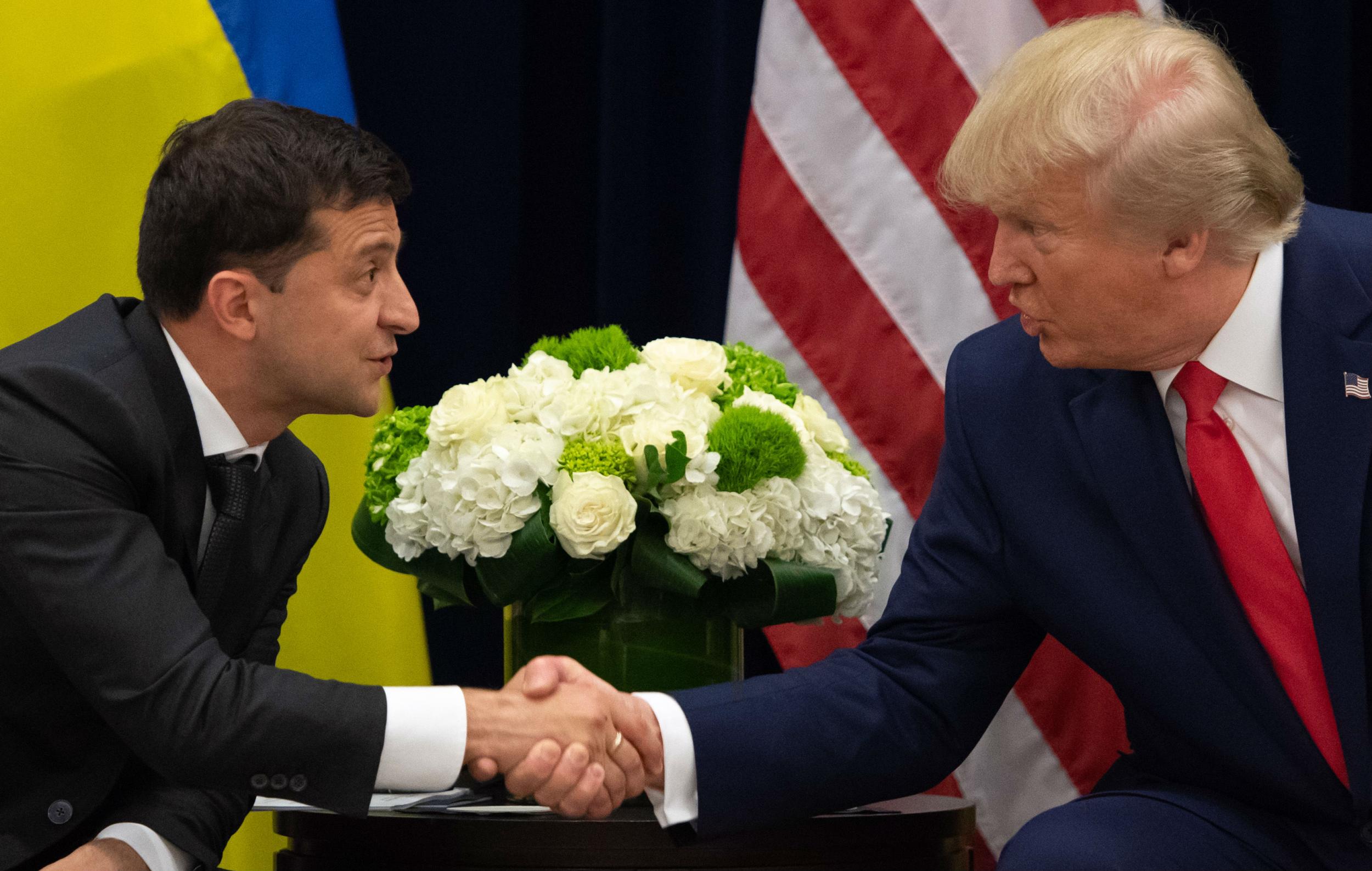I'm an American who just returned from years in Kyiv. This is what Ukrainians really think of Trump — and Zelensky
'Ukraine followed America. There's a television actor for president'


Your support helps us to tell the story
From reproductive rights to climate change to Big Tech, The Independent is on the ground when the story is developing. Whether it's investigating the financials of Elon Musk's pro-Trump PAC or producing our latest documentary, 'The A Word', which shines a light on the American women fighting for reproductive rights, we know how important it is to parse out the facts from the messaging.
At such a critical moment in US history, we need reporters on the ground. Your donation allows us to keep sending journalists to speak to both sides of the story.
The Independent is trusted by Americans across the entire political spectrum. And unlike many other quality news outlets, we choose not to lock Americans out of our reporting and analysis with paywalls. We believe quality journalism should be available to everyone, paid for by those who can afford it.
Your support makes all the difference.For the past five years, before moving back to the United States, I lived in Kyiv, the eighth largest metropolis in Europe. During my time in the former Soviet Republic, I watched as this dynamic country fought to become closer to the European Union, honored their fallen heroes, and reformed their police force.
Three weeks before I moved to Kyiv in August 2014, MH17 was shot down over a war zone near the Russia-Ukraine border. My New Jersey-based, Christian mother asked me, “Why are you moving to an unstable place right after your medical trauma?”
I had no easy answer. I was a 27-year-old, single, bridge-and-tunnel girl from Bridgewater with chronic pain. When I crashed my car into a fire hydrant on a dark icy night, I feared my injured spine would keep me stuck at home, immobile. Pretty much the minute I learned to walk again, I boarded a plane to Europe.
Choosing Kyiv made sense, as I already had a connection to the country. As a college senior, I’d visited Ukraine during my spring break in March 2009. I was asked to teach an art class to orphans in Simferopol, a town on the Crimean peninsula south of Kyiv. The children were more artistically advanced than I anticipated. I threw away my lesson plans, ashamed that I’d made negative assumptions about their abilities based upon my limited understanding of their culture. Even though it was only 10 days, the trip left a lasting impression. I wanted to honor the request an orphan carefully spelled out in Cyrillic script on a handmade card: “Please remember me.”
With my long dark hair and olive skin, I looked Ukrainian. And even though I recognized some Ukrainian cultural staples like the Cyrillic alphabet and the “happy birthday” song to Cheburashka, I realized I needed to up my game. I bought vyshyvankas — embroidered Ukrainian blouses — and wore them to festivals and on national holidays. I placed vinok — flower crowns — in my hair, and waved blue and yellow flags. I listened to Onuka and DakhaBrakha and learned to make borscht. I checked out books by Ukrainian authors from the school library and did a language exchange program with my friend Vasya. “You speak Russian like American,” he complained. And of course, despite my efforts, I was always going to be an American in a foreign country.
When President Trump was elected in 2016, my Ukrainian friend Masha messaged me: “I’m so sorry Clare.” I streamed Trump’s inaugural address on my iPad. I called Vasya, horrified. “I’ve never heard a President speak this way,” I mumbled, disturbed to hear the words “American carnage” and “America first.” We listened to Trump’s speech over Messenger: mine in English and his translated into his mother tongue, the two languages merging.
In 2019, President Zelensky won the Ukrainian election with 75 per cent of the vote. I was excited about it — we all were. He was a 41-year-old, Jewish, liberal family man who won a landslide election in an Orthodox Christian country. I was curious what changes and reforms he would bring to the war-torn nation. Zelensky was young, energetic, and held great promise. My housekeeper Lusia, who helped me clean when I was sick, told me in Russian, “A working class person like me in charge. Thank God.”
So when my friend Katya told me, in her perfect English, “I’m so depressed Zelensky won,” I was shocked. “Ukraine followed America,” she continued, as we drank negronis. “There’s a television actor for president.”
“Why?” I challenged her, picking up the glass. “He seems great.”
“He’s a Russian puppet. Zelensky’s playing a part,” Katya replied, lighting a cigarette.
My black fluffy cat, which my sister named “Behemoth, the spy,” had an easier time leaving Ukraine than I did. And in the United States, I was devastated when my swim trainer Kateryna was denied a visa to attend an open water swimming competition which we’d trained to participate in together. I cancelled our registration, refusing to swim without my coach, fearing I would be re-injured. I wondered why her visa was denied, fearful that the reason might be political. I wished we had chosen the competition in Italy instead.
When my doctors in New York discovered that I had lived in Kyiv, they spoke to me in Russian.
“How’s Ukraine?” the receptionist asked. I wasn’t sure what to say. I missed my old apartment on Baseina Street and the city’s ornate, hilly landscapes.
“Normal,” I replied, waiting for my nerve block.
Then, all of a sudden, the impeachment inquiry begun. When I heard that Zelensky was being implicated in an alleged quid pro quo plot with President Trump, I was appalled. It looked like an American president bullying a vulnerable, weaker ally into furthering his own political agenda. Dependent on American military aid in their ongoing war against their next door neighbor, Trump knowingly put Ukraine in an impossible situation, undermining their budding democracy and anti-corruption campaigns. As president, I thought, Trump should be supporting Ukraine—not tormenting it.
Frantic about the ramifications of Trump's meddling in Ukraine, I messaged my Ukrainian friends. "I think Zelensky wants to sell Ukraine to Putin. We started [to] buy Russian gas,” my friend Anya said.
Another friend, Anna, sent me a note saying: "Everything what is going on in Ukraine after elections is a big mess." My friend Lois, a fellow American living in Ukraine, told me, "You hear all kinds of rumors" and "it's all so murky." I began to despair that Trump had made everything worse for this innovative country.
Not everyone is pessimistic, however. My friend Alla said, of Zelensky, that "he is working, trying and that's important for me”. So I continue to have hope for the future of Ukraine and the country’s president. But I’m saddened to see how casually an American leader like Donald Trump can cause it damage without a second thought.
Join our commenting forum
Join thought-provoking conversations, follow other Independent readers and see their replies
Comments